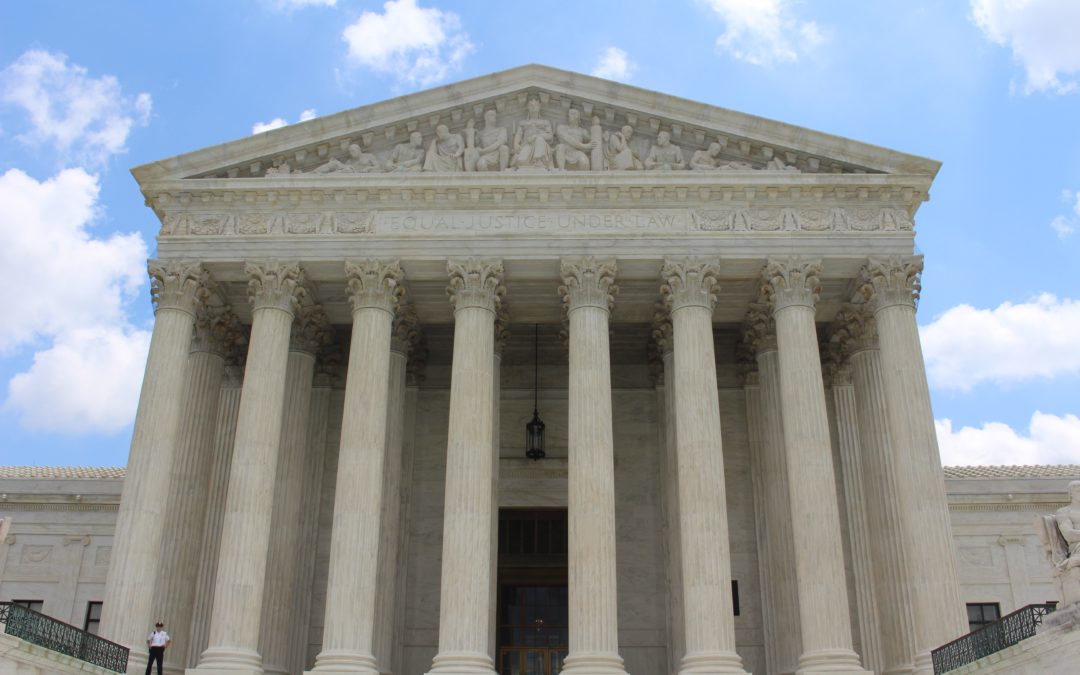Welcome to This Week in Civil Rights and Civil Liberties. State legislatures target abortion and transgender rights, the federal government indicts anti-abortion activists for conspiracy, a jury finds Denver police used excessive force during George Floyd protests, and more.
Arizona Governor Doug Ducey signed a 15-week abortion ban into law. The law makes an exception only for a medical emergency but does not include exceptions for rape or incest. The law mirrors Mississippi’s 15-week abortion ban currently being considered by the U.S. Supreme Court in Dobbs v. Jackson Women’s Health Organization, which is widely expected to mark the end of abortion rights in the United States.
A Colorado jury found that the Denver Police used excessive force against 12 plaintiffs who participated in protests in the aftermath of the killing of George Floyd. The jury awarded the plaintiffs $14 million in damages to be paid by the city and county of Denver. The jury found the city and county violated plaintiff’s constitutional rights under the First and Fourth Amendments by failing to properly train its police officers. This case is the first complaint of police misconduct during the George Floyd protests in the nation that went to trial. Its result could set a precedent for other similar pending cases across the country.
The American Civil Liberties Union, along with other civil rights groups, filed suit after the Louisiana legislature voted to override Governor Edwards’ veto of a congressional map that lacks a second majority-black district. The suit challenges the map as a violation of §2 of the Voting Rights Act of 1965. While the state’s voting-eligible population is nearly one-third Black, the map contains only one majority-black district out of six congressional districts. Jared Evans, Policy Counsel at the NCAA Legal Defense Fund, said the map “clearly violated the Voting Rights Act of 1965 by diluting the voices of Louisiana’s one-third Black voting population.”
Two governors signed anti-trans legislation into law. Arizona Governor Doug Ducey signed two anti-trans laws: one targets transgender youth in Arizona by restricting access to gender-affirming healthcare for minors, while the other prohibits transgender athletes from competing in women’s sports at some schools in the state. Oklahoma Governor Kevin Stitt also signed a sports ban prohibiting transgender women and girls from competing on teams according to their gender at public schools, public charter schools, and public colleges in the state.
The Department of Justice indicted nine defendants for obstructing patients and providers of a reproductive health services facility. Having allegedly participated in a blockade of a clinic that provides abortions, the defendants were charged with conspiracy against federal civil rights and violating the Freedom of Access to Clinic Entrances Act (FACE Act). The blockade was meant to prevent the clinic from providing and patients from receiving reproductive health services.
In Ohio, voters petitioned the state supreme court to commence contempt proceedings against the Ohio Redistricting Commission. Petitioners Ohio Organizing Collaborative v. Ohio Redistricting Commission joined petitioners Bria Bennett et al. in a motion asking the Ohio Supreme Court to begin contempt proceedings against the commission for not complying with the court’s orders to adopt legislative maps that do not violate the state constitution’s prohibition on partisan gerrymandering. Earlier in March, the Ohio Supreme Court rejected the commission’s third set of maps and ordered it to produce new maps using an independent map drawer.

